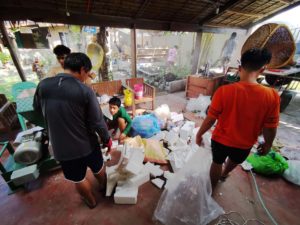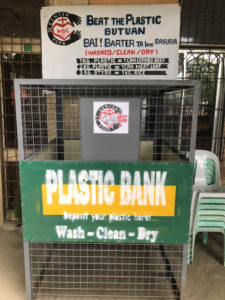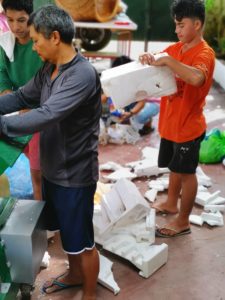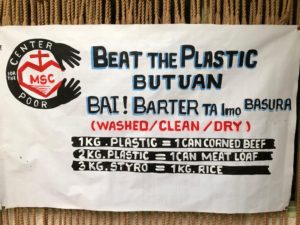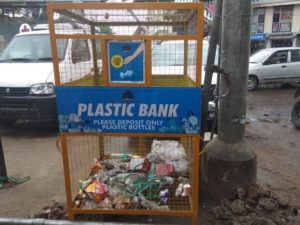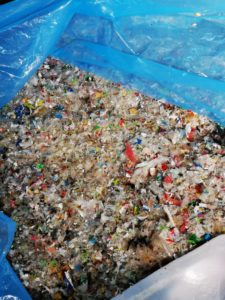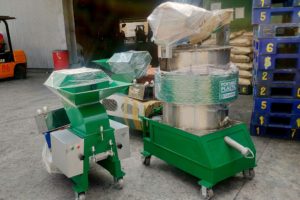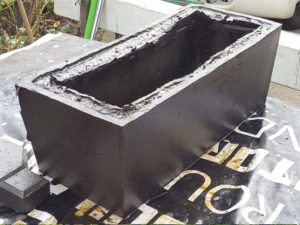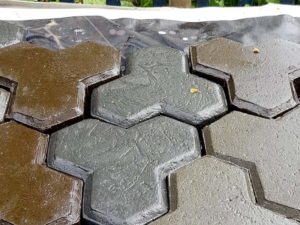The MSC Center for the Poor in the Philippines initiates a project called “Beat the Plastic” in Butuan. “Small-scale activities in respond to global warming may not be the ultimate solution but surely will give a big impact to our environmental problem” says Fr Ritchie Gomez MSC community leader. The Center bought a Plastic Pulverizer & Densifier Machine that makes Plastic Trash into Bricks or Flower Pots .
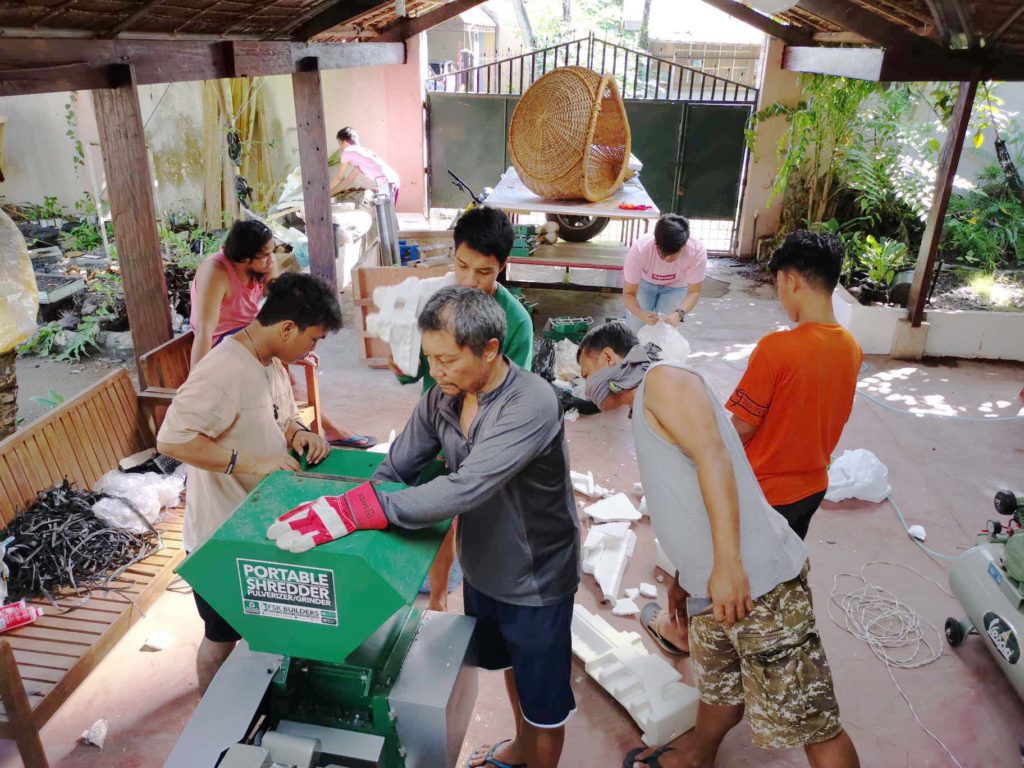
Butuan Beat the Plastic project in operation.
“During preparation, we have to properly collect used cooking oil from establishments or household kitchens, instead of throwing them away to the sink or canals that may cause cloggings. Garbage styro foams and plastics (washed/clean/dry) will also be needed. ”
“We hope for greater efforts and unity towards a sustainable environment that will also benefit human beings.”
- Beat the Plastic operation in progress, community working together
- Plastic bank collection point
- The community come together to save their environment from plastic waste
A single resident in Butuan produces an average of .7 kilograms of waste a day. Hence, 8,400 to 8,600 tons of garbage is accumulated in every City across the country everyday. This is 25% of the country’s daily solid waste generation of 35,000 tons.
About half of the garbage is bio-degradable waste such as food scraps, leftovers, and animal carcasses. About 17% are paper and 16% are plastics. The rest are discarded metal, ceramics, rubber and leather.
The social costs of wastes are not managed wisely and are devastating. Ill effect of peoples’ health, socio economic condition, coastal aquamarine environment, and climate is observable. Slum communities generally emit smelly, disgusting, filthy, yucky and revolting putrid smells. Flies and rats abound and hence endless health problems. On the other hand, if managed wisely, these wastes can be turned positive. Indeed, somebody’s waste can be another’s treasure (concept of Zero Waste).
When God created the world, everything was good and has its own purpose and interconnected harmoniously. The concept of “waste” or “garbage” is human’s – a clear damage of the integrity of creation. The extent of the destruction has reached a level where human kind is threatened of its meaningful existence. All the streams and rivers within our cities are considered dead. Half a century ago, these waters were the source of life for the people. These days these rivers cannot sustain any life.
- Beat the plastic Butuan
- Plastic bank collection point
- Beat the plastic
Ownership of land in the rural areas and in the urban centers is concentrated on few families pushing the majority in the margins such as riverbanks, under the bridge, on the beach front, and in the side streets. Slum living is the life condition of the majority in the urban centers in the Philippines.
“Beat the plastic” is hope for the Butuan community to organise their community and gather their collective efforts to carry out the following:
1. Education on the integrity of creation .Restoring the integrity of creation calls for a “new vision” and a “new heart.” Genesis 1:2 tells us that everything in the world that God made was good, beautiful and fruitful. And humankind was made as stewards of this beautiful creation. The need to respect all beings which constitute the world – humans, plants, animals, birds, air, water, etc. shall be promoted. This respect prevents humankind from using the elements in our environment indiscriminately, according to what we want. The delicate balance must not be disturbed. Otherwise, all forms of life are threatened.
2. Zero Waste and Segregation/Garbage Management
Garbage must be managed from its source. Industries need to ensure that when things go out from their sites, these are not poison to living things. Households need to manage wisely the kitchen refuse for greater value. But these facts remain to be campaigned vigorously and militantly. Consumerism has pushed the people into wanton buying and disposing. Overproduction of goods has flooded the earth with lots of junks.
Zero waste – Nature is designed as a zero-waste system. Every out- put is someone else’s input. There is no such thing as waste in nature. By contrast, the human economy is full of waste: waste that is produced while sourcing from nature. Only tiny fractions of our waste are being cycled back into a closed-loop system of reuse.
3. Ecological Balance
Caring for creation includes acceptance of the fact that natural resources are limited. Some are not renewable. Using them as if they are inexhaustible, with absolute dominion, seriously endangers their availability not only of the present generation but above all for generations to come. Care for the sustainability of the material environment is also caring for our fellow human beings who will come after us. A sense of solidarity with future generations should move us to care for our environment now.
- Plastic Pulverizer & Densifier Machine
- Reults: Flower pot!
- Tiles made from the results of the recycling.
